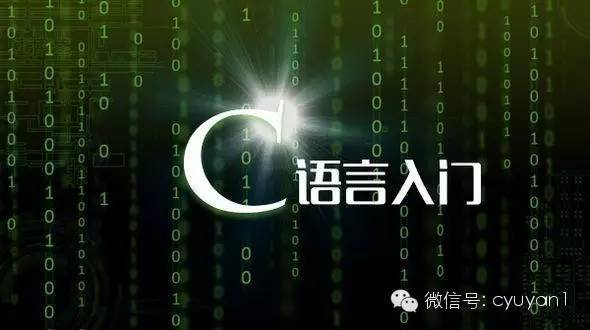As a "lower" language in high-level programming languages, C is always less attractive. Some people will list a series of shortcomings in the C language as a reason to refuse to contact him. For example, the most common: I don't need C language in my work.
Indeed, in today's rapid development of the Internet, even in large companies, programmers in many positions do not need C language, and many small startups may not need the entire company. A variety of high-level languages, scripting languages ​​can be paid for. However, if you want to know more about the program you are writing and want to know more about how the program works on your computer, you need to know the C language (of course, there are many basic disciplines in computers, and we only discuss programming languages ​​in this article).
Let's take a look at the benefits of learning C.

First, learning C can give you a better idea of ​​the other high-level or scripting languages ​​you are using.
First of all, the ideas of programming languages ​​are all the same, like loops, jumps, control flows, etc., and the languages ​​are basically similar. Second, the most important thing is that many high-level languages ​​or scripting languages, the underlying itself is implemented in C language, and has a lot to do with C language. If we want to understand the lower-level implementation of each language, we must have the foundation of the C language. For example, if you are a PHP engineer, you can't do it for ten years. PHP hasn't seen the PHP source yet!
Second, learning C can help us learn other open source modules.
Looking at open source code is a good way for programmers to advance, and many open source software is implemented in C language. Linux/Unix systems are implemented in C language. If you want to understand more basic computer technology, such as operating system, multi-process / multi-threading, process communication, network programming, etc., it is difficult to understand C language.
Third, learning C language is the basis for learning other languages.
I think this is the most important and most practical. Even if I am new to programming, I suggest starting with C.
First of all, the C language is the closest high-level language to compilation, and it is known as the original. The basic chapters of the C language tutorial - variables, conditional judgments, loops, control flow, functions are the basis of the programming language, no matter how other languages ​​change, the thoughts are similar to the C language.
The slightly difficult chapters of arrays, structures, and pointers are also obstacles that prevent many students from learning C language further. The pointer is also the most criticized thing in C language. Then, these foundations are the cornerstones that help us understand other object-oriented programming languages.
If you are new to programming, you should also consider which programming language to use. Please don't hesitate to choose C language! The process of learning is definitely more difficult than other languages, but it is definitely the right choice when you look back on it someday. When I was a freshman, it was completely zero-based. I learned C language myself. The first three chapters of the tutorial were repeated three times. Only after I felt a little bit of it, I wrote "hello, world". All beginnings are hard. If you are already a qualified programmer, but have not learned the C language, I also recommend to learn again.
Product categories of Universal Stylus Pen, We are Specialized Stylus Pen manufacturers from China, The Universal Stylus Pen can be worked on android phones / apple phones and all brands capacitive touch screens. We have perfect after-sale service and technical support. Looking forward to your cooperation.
Phone Stylus Pen,Touchscreen Stylus Pen,Stylus Pen For Android,Tablet Stylus Pen
Shenzhen Ruidian Technology CO., Ltd , https://www.szwisonen.com